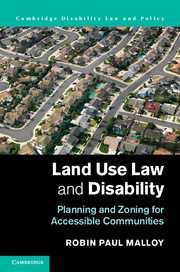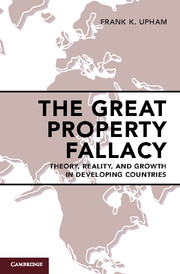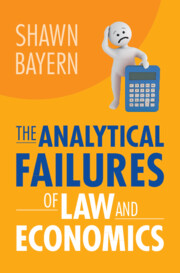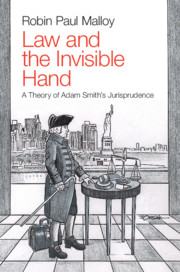Land Use Law and Disability
Planning and Zoning for Accessible Communities
Part of Cambridge Disability Law and Policy Series
- Author: Robin Paul Malloy, Syracuse University College of Law
- Date Published: October 2014
- availability: This ISBN is for an eBook version which is distributed on our behalf by a third party.
- format: Adobe eBook Reader
- isbn: 9781316190326
Find out more about Cambridge eBooks
Adobe eBook Reader
Other available formats:
Paperback, Hardback
Looking for an inspection copy?
This title is not currently available for inspection. However, if you are interested in the title for your course we can consider offering an inspection copy. To register your interest please contact [email protected] providing details of the course you are teaching.
-
In Land Use Law and Disability, Robin Paul Malloy argues that our communities need better planning to be safely and easily navigated by people with mobility impairment and to facilitate intergenerational aging in place. To achieve this, communities will need to think of mobility impairment and inclusive design as land use and planning issues, in addition to understanding them as matters of civil and constitutional rights. Although much has been written about the rights of people with disabilities, little has been said about the interplay between disability and land use regulation. This book undertakes to explain mobility impairment, as one type of disability, in terms of planning and zoning. The goal is to advance our understanding of disability in terms of planning and zoning to facilitate cooperative engagement between disability rights advocates and land use professionals. This in turn should lead to improved community planning for accessibility and aging in place.
Read more- Offers a totally new look at disability from a planning and zoning perspective under the police power rather than from the standard perspective of civil rights
- Challenges current approaches to planning for people with disability as being planning by litigation rather than by intention
- Distinguishes between accessible design guidelines, as in universal design, and the process of regulating land use
Customer reviews
Not yet reviewed
Be the first to review
Review was not posted due to profanity
×Product details
- Date Published: October 2014
- format: Adobe eBook Reader
- isbn: 9781316190326
- availability: This ISBN is for an eBook version which is distributed on our behalf by a third party.
Table of Contents
1. Inclusion by design: thinking beyond a civil rights paradigm
2. Planning and zoning under the police power
3. Regulating inclusive design
4. Inclusive design in a market context
5. Additional zoning concepts for inclusive design
6. Conclusion.
Sorry, this resource is locked
Please register or sign in to request access. If you are having problems accessing these resources please email [email protected]
Register Sign in» Proceed
You are now leaving the Cambridge University Press website. Your eBook purchase and download will be completed by our partner www.ebooks.com. Please see the permission section of the www.ebooks.com catalogue page for details of the print & copy limits on our eBooks.
Continue ×Are you sure you want to delete your account?
This cannot be undone.
Thank you for your feedback which will help us improve our service.
If you requested a response, we will make sure to get back to you shortly.
×












